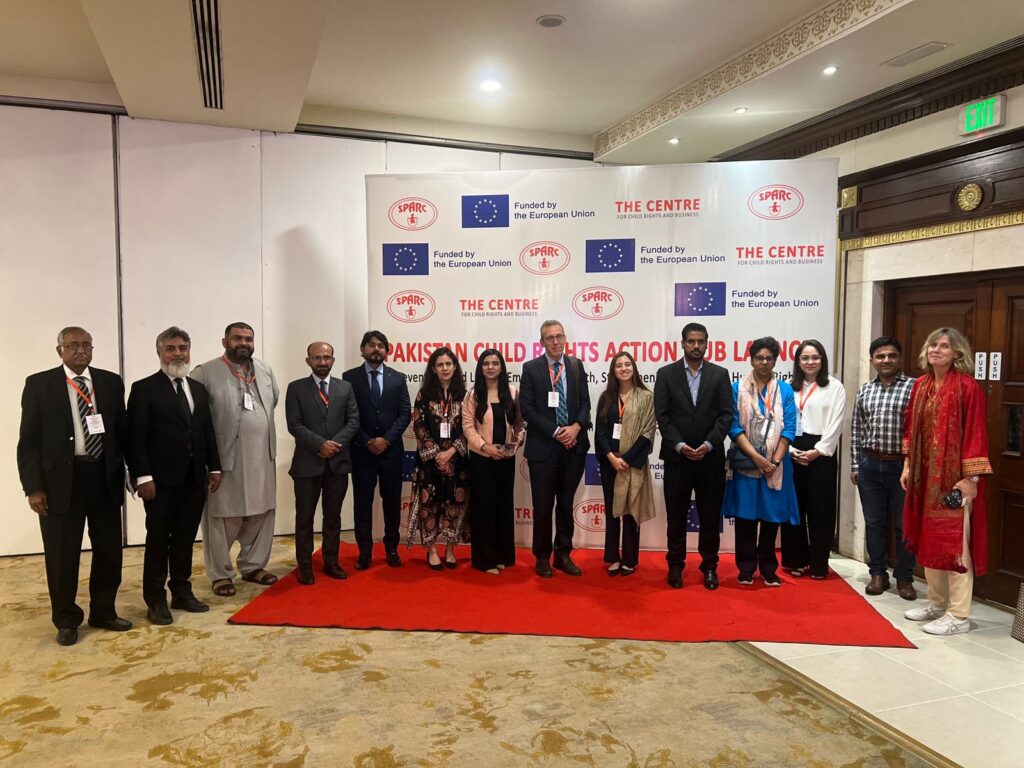Tabish Kafili

Karachi: An EU-funded Child Rights Action Hub was launched in Karachi on Thursday to strengthen human-rights due diligence and curb risks of child and forced labour in Pakistan’s textile and leather supply chains. The initiative is led by the Society for the Protection of the Rights of the Child (SPARC) and The Centre for Child Rights and Business, with a second hub planned for Multan in October.
The hub will work with businesses, suppliers, government and civil society to improve supply-chain transparency, build supplier capacity and establish remediation systems for rights violations. Organisers said the project is designed to address challenges in informal and lower-tier production — areas often overlooked by corporate compliance programmes but carrying elevated risks for child labour.
Rajvir Singh Sodha, Special Assistant to the Sindh Chief Minister on Human Rights, welcomed the collaboration, calling it aligned with provincial efforts to protect children. Jeroen Willems, Head of Cooperation at the EU Delegation to Pakistan, stressed the importance of Pakistan’s commitment to international labour conventions, noting that the EU remains the country’s largest buyer under the GSP+ trade scheme.
SPARC Executive Director Asiya Arif said the hub would help bridge gaps across supply chains, enabling the formal sector to compete globally while safeguarding children. Dr. Ines Kaempfer, CEO of The Centre for Child Rights and Business, emphasised the need for sustainable and collective action to ensure long-term change.
Industry representatives also shared views at the launch. Junaid Ur Rehman of the Towel Manufacturers Association said facilitation rather than penalisation was key to enabling reforms, while Kausar Eijaz Tata of the Karachi Chamber of Commerce noted that better workplace conditions would boost women’s participation in the labour force. Sindh Labour Department official Abdul Samad Soomro reiterated the government’s commitment to eradicating child labour.
The Karachi hub builds on similar models in Bangladesh, Malaysia and the Democratic Republic of Congo, marking a significant step for Pakistan’s export sectors in aligning with international standards and safeguarding children in supply chains.























